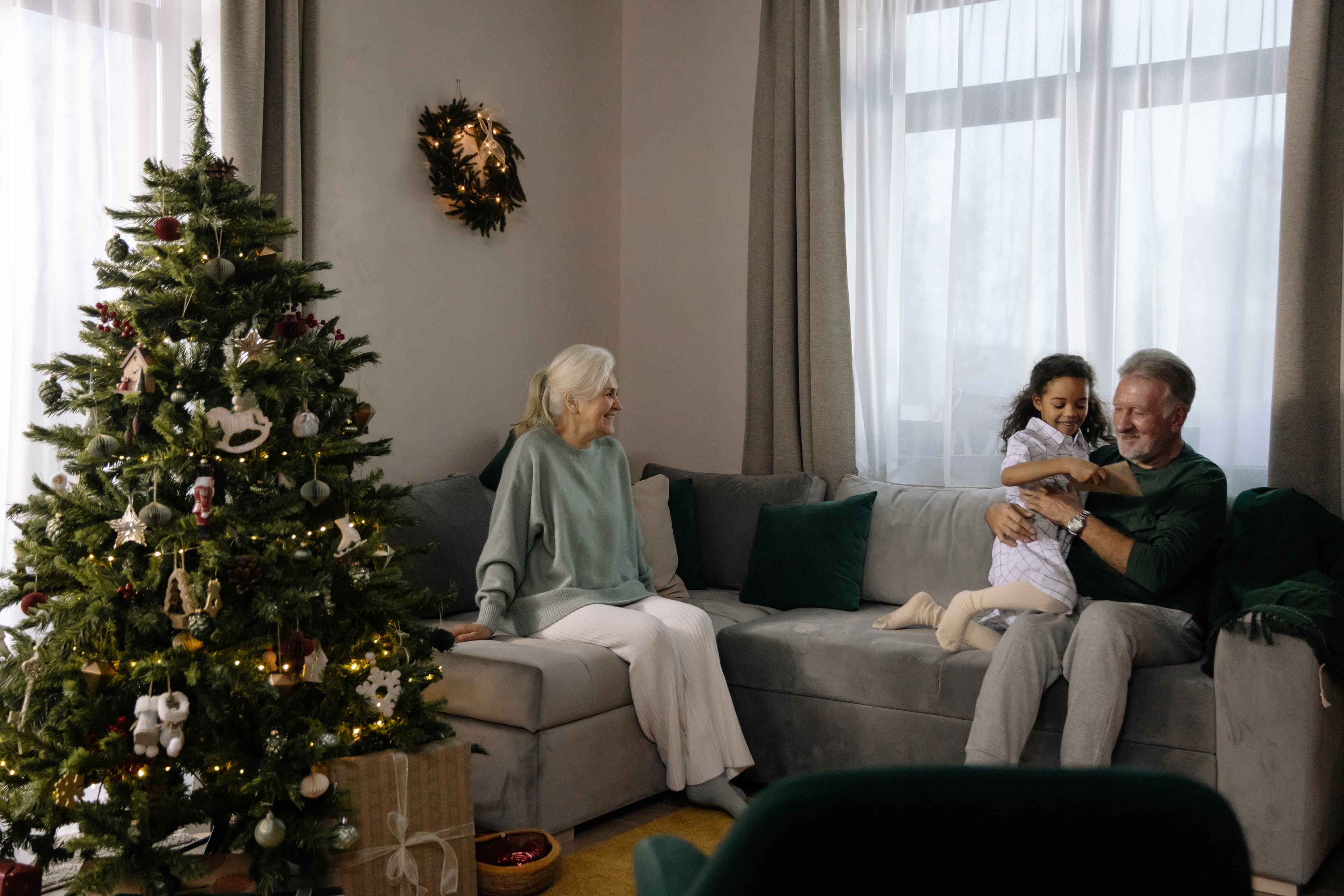One of the biggest struggles caregivers face is finding activities that engage their loved ones with dementia or Alzheimer's and improve their quality of life. Fun, no-fail games and activities allow those with Alzheimer's or dementia to feel successful and productive, which is something we all need to regularly feel for the sake of our mental health and overall well-being.
Participating in failure-free, mentally stimulating games and activities can help reduce the frequency of behaviors associated with dementia/Alzheimer’s, like sundowning, anger, and agitation. Many caregivers also notice less depression and anxiety in their loved ones with Alzheimer's and dementia who regularly engage in games and activities.
We've created a list of 10 games and activities for adults with Alzheimer's or dementia. The key to all the games on this list is that you can't perform them incorrectly, which will give your loved one a sense of success and satisfaction.
Safety tip: When planning activities for a loved one with Alzheimer's or dementia, make sure any items involved are safe. Don't introduce sharp objects into games unless you’re sure they can be handled safely. Choose games that align with their individual behaviors. You know your loved one best!
1. Bingo
Bingo is one of the best games to provide fun for those with Alzheimer's and dementia. In fact, a study published in the American Journal of Alzheimer's Disease and Other Dementias found that playing bingo helps Alzheimer's and dementia patients perform cognitive tasks better and increases alertness and awareness hours after playing. Don't worry about winning or losing. Simply call numbers until your loved one gets a bingo!
2. Dominoes
Dominoes are another excellent game for people with dementia or Alzheimer's because they have a familiar design and are easy to hold and maneuver. Plus, you can play a huge variety of games with dominoes that can be fun for an individual at any stage of dementia or Alzheimer's. Remember to put emphasis on playing the game, not scoring or winning or losing, so that the game feels productive and successful for your loved one.
Check out this Wikipedia page for a list of games that can be played with dominoes. Mexican Train is a favorite among caregivers.
3. Puzzles
Many people already have a collection of jigsaw puzzles, so this activity often doesn't require any extra purchases. Puzzles also come in a wide variety of difficulties, so choose one that fits the skill level of your loved one. You can also create your own puzzle by printing out family photos or other images your loved one might like. Laminate the image and then cut it into puzzle-like pieces for them to put back together.
If you'd like to take it a step further, you can buy customized puzzles on photo sites like Shutterfly and Walgreens. These make a great gift and game for your loved one with dementia and Alzheimer's.
4. Online games or apps
If you're caring for someone who is digitally savvy, there are many great online or app-based games that are suitable for people with dementia or Alzheimer's. If you have a tablet, try a jigsaw puzzle app like Jigsaw Puzzles Real, a colorful crossword game like Word Search Colorful, or a virtual coloring book like Coloring Book for Adults.
5. Pasta threading
Arts and crafts are great mind-stimulating activities! Start a collection of dry pasta with holes at either end (some of the best types are ditalini, penne, rigatoni, and rotelle). Buy a large plastic needle or create your own by adding tape to the end of a piece of string or yarn. Then have your loved ones string the pasta together. Make necklaces and garlands, or simply see how long a string they can make. If you're feeling extra crafty, consider painting or dying the pasta to add some color to the activity.
6. Pattern blocks
Pattern blocks are a fun way to stimulate creativity and come with a level of familiarity that can be comforting to individuals with Alzheimer's or dementia. Many sets come with cards that show users how to make specific designs, but it can be just as rewarding for your loved one to create their own patterns and see where their creativity takes them.
If you're caring for someone who likes digital activities, you can visit the website ToyTheatre.com and play with digital pattern blocks.
7. Jumbo playing cards
Many people are familiar with card games, so getting a deck of jumbo playing cards is a wonderful way to engage your loved one using cards that are easier to hold and see. Individuals can enjoy games like Go Fish and Crazy Eights in the earlier stages of Alzheimer's and dementia and simple activities like shuffling and sorting by color or suit in the later stages.
8. Fidget toys
The popularity of fidget toys over the last few years means there's a wide variety of them in the market. Playing with fidget toys can be fun and mentally stimulating, and there are many different levels, from simple spinners and poppers to more puzzle-based toys.
9. Scrapbook or make collages with old magazines
If your elderly adult can safely use scissors, making collages or scrapbooks with old magazines, calendars, or catalogs can be a pleasurable and creatively stimulating activity. Gather old magazines or other visual materials (consider asking family and friends to add to your collection) and have your elderly adult cut out images they like and paste them onto paper or in a blank scrapbook. Include scrapbook stickers for a fun embellishment option.
10. Create a memory box
A memory box can help those with Alzheimer's or dementia connect to the things they love. Put together a memory box with their unique past in mind. You can call to mind favorite hobbies from the past, like a scarf made by a crocheter or a whisk and a spatula for someone who loved to bake.
You can also tailor a box to a person's former work life. If your loved one was a handyman, include objects that will remind them of that - nuts, bolts, a tape measure, electrical tape, etc. If they were a teacher, include things like pencils, erasers, folders, or class photos from years past.
Above all, make sure your loved one is enjoying themselves.
Every individual with dementia or Alzheimer's has their own likes and dislikes, and there's no one-size-fits-all game or activity. When engaging in games and activities, pay attention to how your loved one reacts. If you sense frustration, move on to another activity. Remember, there is no failure in these activities! Be creative and focus on the things that bring feelings of enjoyment and success to your loved one. Even the simplest activities can bring joy.



